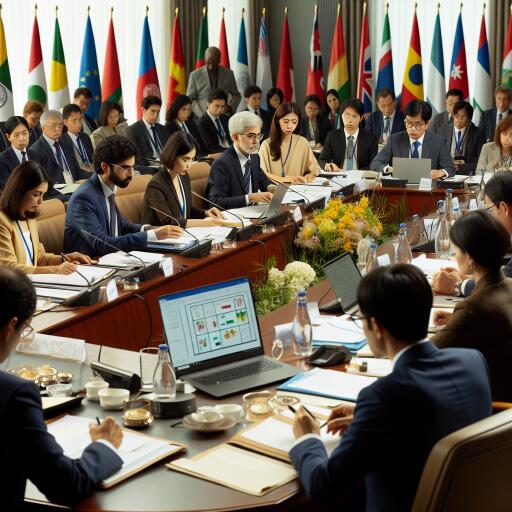
SADC PF Standing Committee Enhances Focus on Food Security and Sustainable Agriculture
In Johannesburg, South Africa, a pivotal discussion convened this week, bringing together the Southern African Development Community (SADC) Parliamentary Forum’s Standing Committee on Food, Agriculture, and Natural Resources. With an urgent agenda, the committee deliberated on critical issues surrounding food security and sustainable agriculture in the face of climate change.
Under the banner of “Promoting Climate Action in Parliaments to Enhance Food Security, Sustainable Agriculture, Sexual Reproductive Health and Rights Outcomes, and Effective Natural Resource Governance,” this gathering, taking place from May 19 to 21, serves as a precursor to the anticipated 55th Plenary Assembly Session in Angola from July 1 to 7, 2024.
Chaired by Malawi’s Member of Parliament Ishmael Ndaila Onani, the committee’s broad remit includes tackling the myriad challenges posed by climate change—ranging from disrupted food systems to threats against natural resources and agricultural stability. With a multidisciplinary approach, the discussions aim to weave together strategies that address the intertwined challenges of food security, sustainable agricultural practices, sexual and reproductive health rights (SRHR), and governance of natural resources.
The region’s vulnerability to climate-induced phenomena—such as erratic rainfall, droughts, floods, and increasing temperatures—places immense pressure on food production, water availability, and the overall health of the ecosystem. These adverse conditions not only threaten the sustenance of millions but also amplify existing social vulnerabilities, especially among women and marginalized communities, by increasing risks of violence and hampering access to essential services.
Boemo Sekgoma, the SADC PF Secretary-General, underscored the significance of transitioning towards renewable energy sources within the southern African region. By leveraging the region’s wealth of critical minerals essential for clean energy technologies, there’s a golden opportunity to foster energy security, stimulate economic development, and mitigate climate change effects.
Highlighting the urgency of the moment was Chikondi Chabvuta, a regional advocacy adviser with CARE International. She stressed the indispensability of an integrated approach to tackle the effects of climate change, which not only endangers the achievement of sustainable development goals but exacerbates food insecurity, and affects the well-being of women and girls the most.
Chabvuta called attention to the shared responsibilities of SADC parliamentarians. She advocated for heightened oversight on food security and sexual and reproductive health rights, robust budget allocations, and active engagement in knowledge sharing on climate impacts with their constituents. She painted a stark picture of the economic and societal repercussions of inaction, urging immediate measures to safeguard a sustainable future.
As the meeting progresses, discussions are set to explore a holistic spectrum of issues—from enhancing agricultural resilience, understanding the deep relationship between climate change and public health, to fortifying infrastructure against the looming threats of a warmer planet. The summit represents not just a forum for dialogue but a crucible for action against the backdrop of a rapidly changing global climate scenario.
With a concentrated effort on transitioning to cleaner energy sources, alongside bolstering economic stability, the SADC region stands at a critical juncture. The outcomes of this meeting could chart the path toward not just mitigating the present challenges but securing a thriving, resilient future for the southern African community.





Leave a Reply